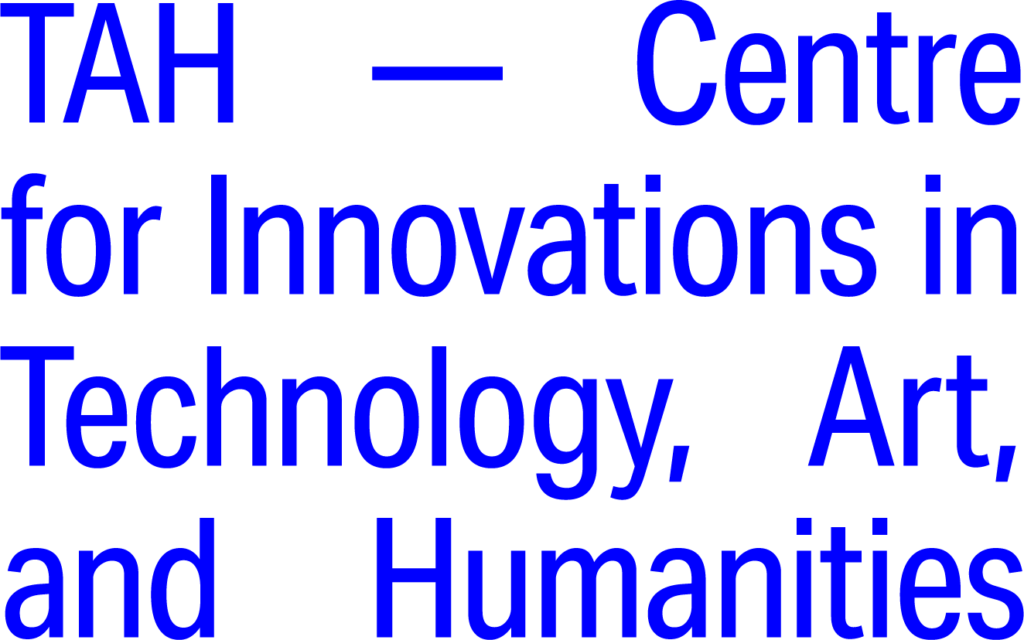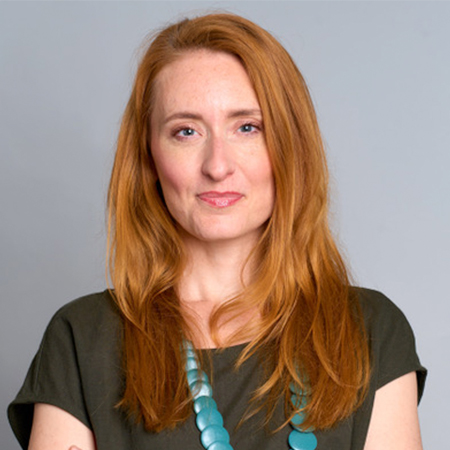Art-Tech for Higher Education
“Learn how to create engaging, academically rigorous teaching materials with creative AI tools—confidently, ethically, and in ways that save time while supporting student learning.” – TAH Centre
Art-Tech for Higher Education is a four-day hands-on course that equips university educators with practical skills and ethical frameworks for using generative AI in teaching and research. Participants will explore applications across text, image, audio, and video, while reflecting on issues of academic integrity, authorship, and privacy. Each day is led by domain experts, combining demonstrations, guided practice, and critical discussion. Alongside experimenting with tools, participants will co-create personal guidelines for responsible AI use and gain strategies for evaluating future developments. The course is eligible for Erasmus+ Staff Mobility and results in a certificate of attendance.
Who Should Attend
- University lecturers and tutors
- Studio leaders and course designers
- Educational technologists and curriculum developers
- Academic innovators seeking to responsibly integrate AI into higher education
Learning Outcomes
- Critically navigate the rapidly evolving landscape of generative AI in higher education.
- Apply workflow thinking to explore how text, image, audio, and video modalities can support student engagement.
- Prototype AI-supported educational content in the medium most relevant to their teaching context.
- Draft personal and institutional guidelines for responsible AI use, developed through ongoing reflection and group discussion.
- Recognize and integrate human-centered practices, including embodied and multisensory approaches, as a counterbalance to synthetic media.
- Future-proof their teaching practice by identifying strategies for evaluating emerging technologies over time.
Why This Course Matters
Generative AI is already part of your students’ daily lives. Institutions, however, are still defining their approaches—leaving educators caught between innovation and uncertainty. This course provides clarity: it equips you with the tools, strategies, and ethical framework to engage AI responsibly, while maintaining academic integrity and educational quality.
Instead of following a one-size-fits-all recipe, you’ll explore a range of modalities and select the approaches that make sense for your teaching. Along the way, you’ll develop an AI-use policy for your own practice and join a network of peers facing similar challenges.
After Completing The Course, You Will Be Able To:
- Produce AI-assisted educational materials in text, image, audio, and/or video formats.
- Evaluate tools against critical criteria: privacy, cost, accessibility, pedagogical fit.
- Integrate AI-enhanced resources into existing curricula while safeguarding academic integrity.
- Co-create and refine your own ethical guidelines for AI in education.
- Reflect on embodied and multisensory approaches as complementary to digital tools.
- Anticipate and adapt to technological change with a futureproof mindset.
Pre-requisites:
Participants should have basic prior experience with generative AI (e.g., having tried tools like ChatGPT or Google AI Studio). For those new to AI, we will share a set of recommended resources to review before the course.
Date
February 1 – 5, 2026
Location
Prague
Format
5-day intensive course with hands-on workshops with internationally recognised experts
Certificate
Proof of Attendance
Language
English
Fees
395 EUR or 10.000 CZK per participant
The course is eligible for Erasmus+ Staff Mobility Week
20% discount for TAH association members
Registration Deadline
31 December, 2025
Course Structure
A relaxed start: informal introductions, drinks, and networking. An opportunity to meet the teaching team and fellow participants, share expectations, and set the tone for the coming days.
Gain a critical overview of the AI ecosystem in higher education. Learn how to apply text-based AI to teaching and research—designing assignments, engaging students, structuring ideas, and analyzing student work—while developing first steps toward your own responsible-use guidelines.
Day 2: Image & Audio AI Tools for Engaged Learning
Discover how visual and audio AI tools can enrich learning experiences. From illustrations and diagrams to podcasts and voice agents, you’ll experiment with multimodal resources and reflect on issues of authorship, originality, and disclosure in multimedia teaching.
Day 3: AI Video & Digital Storytelling
Investigate the role of video in education through explainers, avatars, and short lectures. Learn how to craft clear, accessible narratives using AI video tools, and explore the ethical implications of data, privacy, and authenticity in audiovisual materials.
Day 4: Ethics & Future-Proofing
Consolidate your personal ethical AI-use policy through group discussion and peer exchange. Prepare for the future by developing strategies to critically evaluate new technologies as they emerge.
Daily Agenda
DAY 0: Introduction & Networking (evening)
18:00–20:00 | Arrival, introductions and embodied learning
Meet the teaching team and fellow participants, share expectations, set a collaborative tone. Experience embodied and multisensory approaches as a counterbalance to digital tools, and prepare for the future by developing strategies to critically evaluate new technologies as they emerge.
DAY 1: Navigating the AI Landscape: Text & Academic Practice
09:30 – 10:00 | Warm-up & facilitated discussion (expectations, personal experiences)
10:00 – 12:30 | Morning Session: Mapping the AI Landscape
- Overview of AI in higher education: opportunities & constraints (privacy, subscriptions, overload).
- Critical myths vs. realities.
- Institutional challenges.
- Group exercise: mapping personal use cases + first draft of AI-use guidelines.
12:30 – 13:30 | Lunch Break
13:30 – 16:00 | Afternoon Session: Hands-on with Text (LLMs)
- Practical applications: assignments, engagement prompts, course materials.
- Academic research support: structuring ideas, synthesizing sources.
- Processing student writing (summarization, theme extraction).
- Peer exchange: sharing useful prompt patterns.
16:00 – 16:30 | Closing circle: reflections + grounding exercise
DAY 2: Image & Audio AI Tools for Engaged Learning
09:30 – 10:00 | Warm-up (visual thinking exercise)
10:00 – 12:30 | Morning Session: AI Images for Learning
- Pedagogical visuals: diagrams, concept maps, illustrative images.
- Ethical/academic issues: authorship, bias, accessibility.
- Workshop: creating a small visual set for participants’ own teaching contexts.
12:30 – 13:30 | Lunch Break
13:30 – 16:00 | Afternoon Session: AI Audio for Education
- AI podcasts, lecture companions, voice agents.
- Designing interactive audio scenarios for practice & feedback.
- Small-group prototyping of audio-based teaching activities.
16:00 – 16:30 | Closing circle: reflections + grounding exercise
DAY 3: AI Video & Digital Storytelling
09:30 – 10:00 | Warm-up (storytelling game / narrative exercise)
10:00 – 12:30 | Morning Session: Educational Uses of AI Video
- Formats: explainers, avatars, micro-lectures.
- Linking text, image, and audio knowledge into coherent video workflows.
- Theory input: narrative clarity, accessibility, privacy considerations.
12:30 – 13:30 | Lunch Break
13:30 – 16:00 | Afternoon Session: Hands-on Video Workshop
- Guided creation of a short educational video (explainer / avatar micro-lecture).
- Peer feedback on narrative clarity & accessibility.
16:00 – 16:30 | Closing circle: reflections + grounding exercise
DAY 4: Ethics & Future-Proofing
9:30 – 10:00 | Warm-up (values-mapping activity)
10:00 – 12:00 | Morning Session: AI Ethics & Policy Synthesis
- Collect & refine the personal AI-use guidelines started earlier.
- Moderated discussion: key tensions (integrity, authorship, bias, privacy).
- Drafting institutional AI policies tailored to participants’ contexts.
12:30 – 13:30 | Lunch Break
13:30 – 15:30 | Afternoon Session: Integration & Future-Proofing
- Futureproofing: strategies for monitoring & evaluating emerging technologies.
- Participant presentations: sharing individual use cases & insights.
16:00 – 16:30 | Diploma ceremony + group reflection
Instructors
Teaching Team
This course is co-designed by Lenka Hámošová and Marcel Kraus in collaboration with the TAH Impact Academy. It is delivered by an interdisciplinary group of internationally recognized experts in AI and education, each contributing their domain expertise—ranging from creative AI and pedagogy to digital storytelling and ethics.
How to register?
Choose your course and follow these simple steps:
- Standard participants: Complete this registration form directly.
Erasmus+ participants: Contact your institution’s Erasmus+ Officer first, then complete this form. - After registering, you’ll receive a confirmation email with preliminary information.
- Pay the course fee according to the invoice (sent 8 weeks before the course).
- Once payment is confirmed, you’ll receive detailed course materials and instructions.
Do You Have Any Questions?
Go through FAQ and our Terms and Conditions or connect with TAH Impact Academy Coordinator





